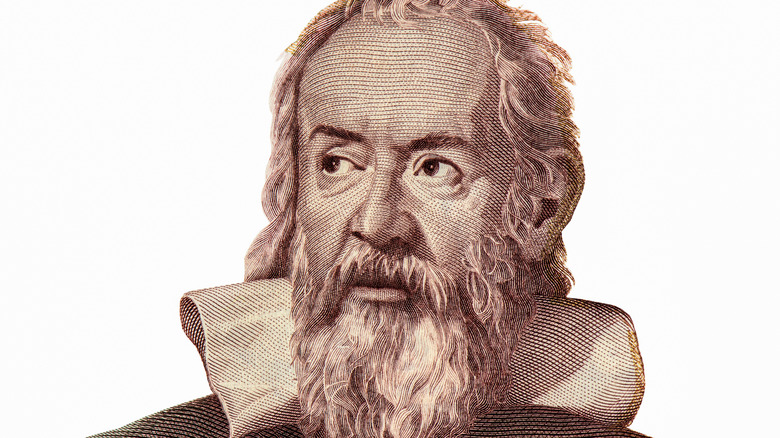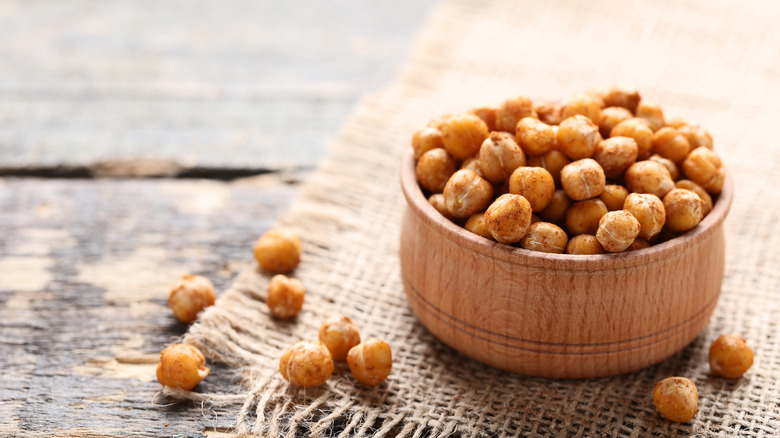The Food Galileo Had On His Grocery List
Grocery lists can be a window into someone's life, culture, and even their soul. They can tell you if someone values cooking meals at home or if they value convenience. Seeing some plant-based ground beef can tell you someone is worried about the planet. You can learn that Sylvia Plath liked to procrastinate by making apple pies (via Lithub). Or that Michelangelo liked tortellini and fish.
Galileo probably didn't think one of the things we would remember about his life was his grocery list. He was a pretty accomplished guy, which a nickname like "the father of modern science" probably tells you. When Galileo wasn't observing the stars or pioneering the laws of motion, History says he was also studying mathematics and philosophy. But all the high-minded work in the world won't stop a man from getting hungry, and even an Italian inventor gets the occasional snack craving. So it's pretty natural that he would scribble down a grocery list next to the more important science-related objects he needed to grab on his next run to whatever Renaissance Italy's version of Target was.
Galileo had a craving for some Mediterranean classics
The most surprising thing about Galileo's grocery list, dated from November 1609, is how familiar it is. DigVenture shows us items you'd expect to find on a checklist of anyone shopping for some healthy Mediterranean dishes these days: Lentils, chickpeas, rice, and spelt, plus some oranges, sugar, spices, and jam. It sounds like he was most of the way to a tasty-sounding lentil soup. He also needed two artillery balls, crystals, and an organ, lest you start thinking your life is just like his.
Galileo's eating habits are a nice reminder that while our food continues to evolve due to technology or trends, so much of what we subsist on has a long history behind it. Bon Appétit says chickpeas have been grown in the Middle East for 10,000 years, and Roman orator Cicero was named for the legume that his family grew. A recipe for jam's ancestor, fruit preserves in honey, was found in the oldest surviving cookbook in the world, which Planting Seeds tells us was from another Roman named Marcus Gavius Apicius. Your breakfast may have been produced differently, but you are eating traditions passed down through generations. So yeah, maybe you do have more in common with Galileo than you think.

